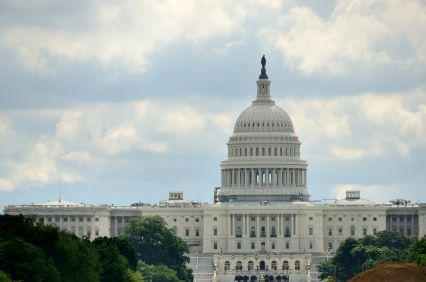Newly introduced legislation in the Senate will help protect the food supply after the COVID-19 crisis has put an unprecedented strain on farmers, workers, food banks, and families.
The shift in demand from restaurants and food service to retail and food donations has caused bottlenecks in the supply chain. Meanwhile, outbreaks of COVID-19 in food processing plants have sickened thousands of workers and slowed production across the country. Farmers have struggled to sell their crops, and some have had no choice but to dispose of perfectly good food. At the same time, the price of groceries are rising, and food banks and other human service organizations are experiencing exceptionally high demand.
“The COVID-19 crisis has tested the strength of our nation’s food supply chain, creating a ripple effect that’s harming our families, farmers and workers,” said Senate Agriculture Committee ranking member Debbie Stabenow (D., Mich.). “This bill will help strengthen our food supply by redirecting food to families and helping farmers and processors retool their operations.”
In addition to advocating for worker protections and increased nutrition assistance benefits, Stabenow authored the Food Supply Protection Act to help fill the gaps in the broken food supply chain, reduce food waste, and help farmers, workers, processors, food banks, and families in need.
The Food Supply Protection Act will:
- Support food banks and non-profits to help increase their capacity and address growing demand. The bill will provide infrastructure grants that can be used for additional cold storage and refrigeration, transportation, personal protective equipment, rental costs, and additional use of commercial and community infrastructure.
- Strengthen food partnerships to prevent food waste and feed families. Through grants and reimbursements, the bill will support new partnerships to make purchases of excess food and increase donations to food banks, schools, nonprofits. These partnerships will promote innovative collaborations with chefs and restaurants and focus on the needs and creative solutions in local communities. They will allow for a diverse variety of purchases and include many areas and products left out of the USDA’s current food box program to ensure more people in need and agricultural producers of all sizes and types can access support.
- Protect workers and retool small and medium-sized food processors. Through grants, loans, and loan guarantees, the bill will support upgrading machinery, temporary cold storage, purchasing personal protective equipment and test kits, and cleaning. This funding will assist farmers and small and medium-sized food processors in protecting their workers and help them cater to new markets so they can continue operations and alleviate bottlenecks in the supply chain.
In addition to Senator Stabenow, the bill is co-sponsored by Senators Patrick Leahy (D-Vt.), Sherrod Brown (D-Ohio), Amy Klobuchar (D-Minn.), Michael Bennet (D-Colo.), Kirsten Gillibrand (D-N.Y.), Robert Casey (D-Penn.), Tina Smith (D-Minn.), Dick Durbin (D-Ill.), and Charles Schumer (D-N.Y.).
Food Supply Protection Act is supported by over 40 food and agricultural organizations, including Feeding America, the James Beard Foundation, Chef José Andrés, National Farmers Union, the National Council of Farmer Cooperatives, the National Milk Producers Assn., United Fresh, United Farm Workers Foundation and more.
“Every link in the food system, from farm to fork, is experiencing serious disruptions right now. If left unchecked, these disruptions could threaten farmers’ livelihoods and undermine national food security,” said Rob Larew, president of the National Farmers Union. “But by both facilitating the acquisition and distribution of surplus food from farmers to food banks as well as helping food and agricultural businesses adapt to new challenges, the Food Supply Protection Act will help ensure that food continues to flow safely and efficiently from farmers’ fields to consumers’ plates.”
Chuck Conner, president and CEO of the National Council of Farmer Cooperatives stated, “The Food Supply Protection Act will complement the efforts of USDA to ensure that the great bounty produced by this country’s farmers and ranchers reaches Americans in need at this difficult and trying time. By helping food banks expand their capacity to carry fresh foods and by providing support for small and medium food processors to expand their capacity, this legislation strengthens critical links in a food supply chain that has been strained to its limit during the COVID-19 pandemic.”
Jim Mulhern, president and CEO of the National Milk Producers Federation thanked Stabenow for writing the Food Supply Protection Act to provide critical funding to enhance dairy and other food donations to food insecure populations and to fortify the food and ag supply chain by helping to meet critical resource needs. “Dairy farmers and manufacturers continue to endure significant headwinds on account of the COVID-19 pandemic, and American households across the country are facing massive economic pain and uncertainty.”


